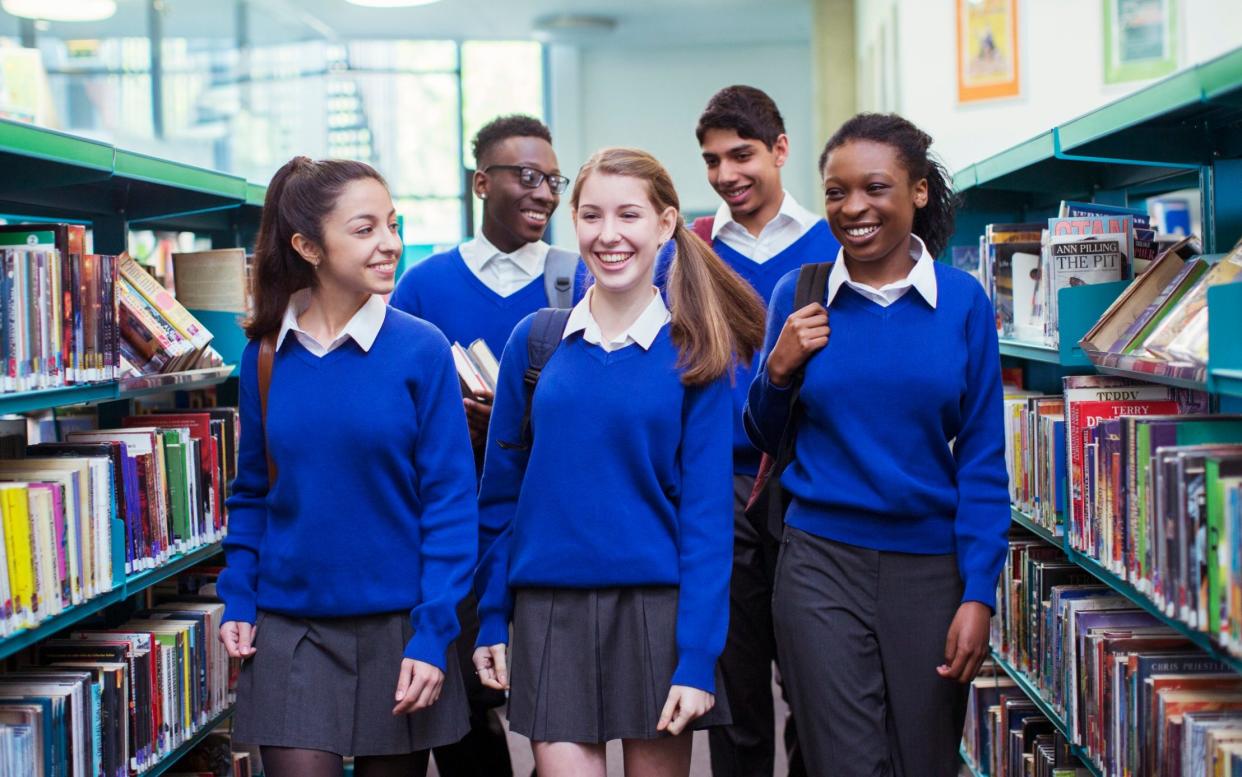Top comprehensives ‘accept more middle-class students than grammar schools’

Top comprehensives are more likely to admit middle-class pupils than grammar schools in some areas, research has suggested.
More than 150 high-performing comprehensive secondary schools in England are more “socially exclusive” than the average grammar school, according to a study by the Sutton Trust.
The research examined the share of pupils on free school meals at each school, and compared it with the rate of pupils on free school meals in the school’s catchment area.
It found that at 155 comprehensives, the gap between the proportion of children on free school meals in their local area and the proportion of pupils eligible for the benefit at the school was worse than at the average grammar.
For grammar schools, the average gap was 9.2 percentage points.
The findings suggest that disadvantaged pupils are less likely to get into top state schools than others, even if they live nearby.
The Sutton Trust analysed admissions at the top 500 secondary comprehensive schools in England by the Attainment 8 measure, which assesses the achievement of pupils across eight subjects at GCSE.
House prices a factor
Across all of the schools in the sample, it found that on average, they took 40 per cent fewer pupils eligible for free school meals than the average comprehensive school.
Higher house prices around top-rated state schools is partly responsible for lower numbers of poor pupils at top schools, the research found. However, the Sutton Trust said that other factors could include schools’ complicated admissions policies and parental decision-making.
Children who qualify for free school meals include those whose parents are on Universal Credit and have a household income of less than £7,400 a year.
The Sutton Trust is calling on the Government to review the school admissions code to ensure all state schools take “a mix of pupils which reflects their local community and provide disadvantaged pupils with a fair chance to access top-performing schools”.
Sir Peter Lampl, founder of the Sutton Trust, said: “The levels of social segregation across the school system are unacceptable.
“The poorest parts of the country are hit by a double whammy of having the fewest top comprehensive schools, which are also the most socially selective. This is deeply concerning.”
The research found that the gap in free school meal rates between the top schools and average schools is widening. In 2016, the top schools for Attainment 8 had 1.6 percentage points fewer pupils on free school meals than the average school. In 2022, this figure was 4.9 percentage points.
‘We need a fundamental reset’
Levels of social selection differed across England, with the lowest number of top schools concentrated in some parts of the country with the highest share of pupils on free school meals.
In the North East, there has been increasing levels of free school meal eligibility, fewer top comprehensive schools and “increasing levels of social selectivity” in the top schools that they do have, the study found.
Faith schools are also more likely to be “socially selective” than the non-religious top comprehensive schools, according to the report.
Lee Elliot Major, professor of social mobility at Exeter University, said: “It is unacceptable that so many schools are failing to reflect the social make-up of the communities they are intended to serve.
“We need a fundamental reset of our priorities in education – schools should only be judged outstanding by Ofsted for example if they are taking in their fair share of free school meals pupils and demonstrating that these pupils are making good progress.”
Geoff Barton, general secretary of the Association of School and College Leaders, said the union supported the charity’s call for a review of the school admissions code and their plans for a fairer admissions campaign.
He added: “Fairer access is not just about admissions practices. It is also about ensuring that all schools have the support and resources they need to provide a high-quality education wherever they are and whatever their context.”

